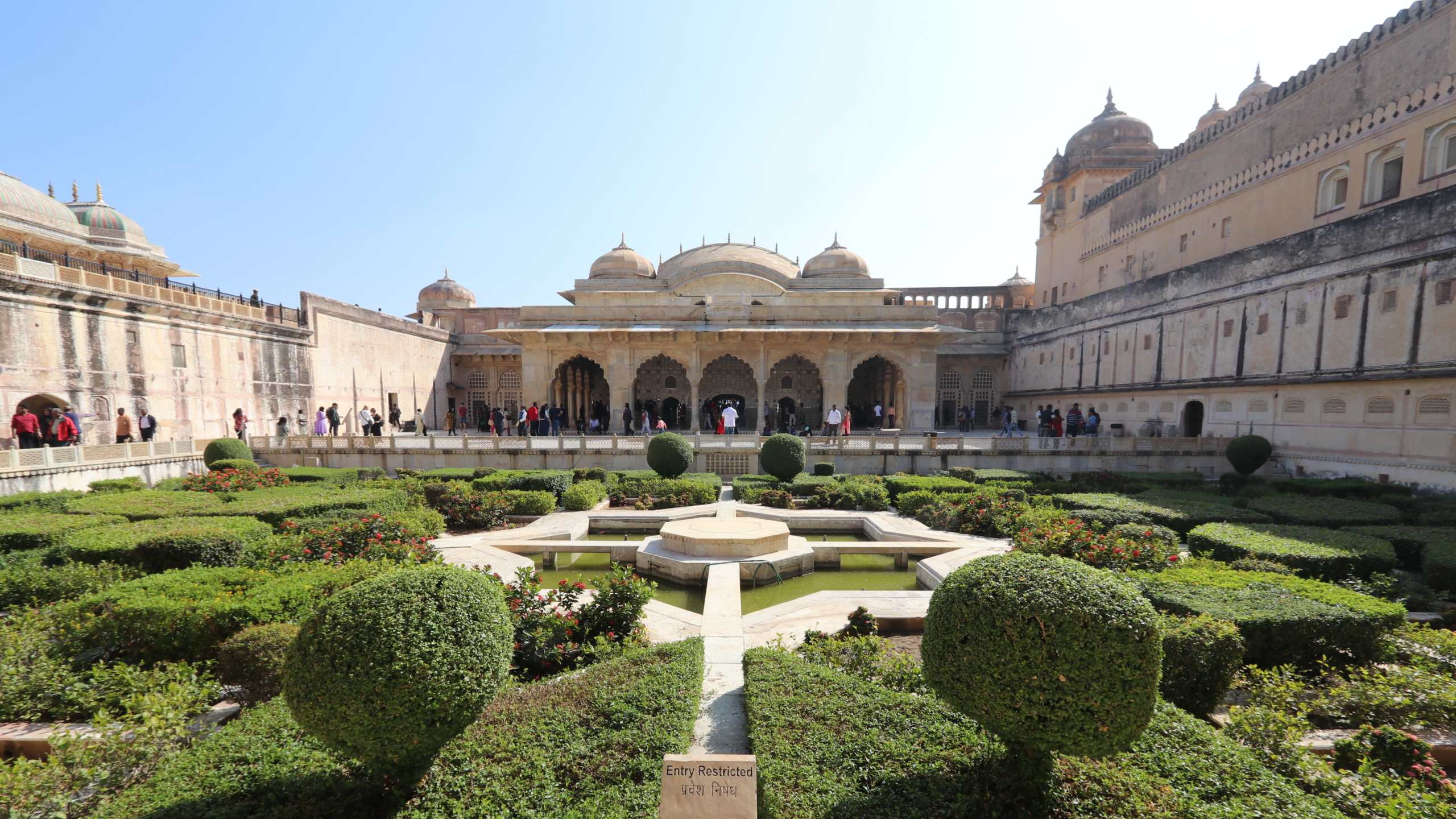
19 – Power, Politics and Architecture: Palaces and Gardens in Mughal South Asia
On campus
Course 19 – Summer School on campus
Monday 8 – Friday 12 July 2024
Hallie Nell Swanson
£645
Course description
How does architecture reflect power? This fundamental question is the theme running through this course, exploring the great palaces and gardens built by the emperors and courtly elite in South Asia during the Mughal era. The Mughals were the dynastic rulers of much of the region from 1526-1858 and were originally of Central Asian origin. Examining form, layout, decoration and spatial conceptualisation, we ask what these architectural commissions say about the representation of their political power in the region. What were the ceremonial activities which took place within these spaces? How did rulers’ ritual activities dictate the creation of their built space? How can decoration and style be used to present imperial ideology? Can the form of a building express political or dynastic importance?
It will be seen that palace and garden architecture became symbolic of Mughal imperial power, and that the concepts of these spaces were then copied and emulated by other nobles and local rulers within South Asia, including, for example, the Rajput ruling elite. Their adoption and adaptation of Mughal imperial spaces exemplifies the symbolic resonance of architecture as an expression of power.
The course will examine architectural spaces produced in the period from the sixteenth to the nineteenth centuries, including Mughal palaces in Fatehpur Sikri and Delhi; Mughal gardens in Delhi, Agra and Kashmir; and Rajput palaces and gardens in Jaipur, Orchha and Gwalior.
How to book
To book your chosen course(s) please use the book now button below and you will be taken to our booking system where you can book and pay (Visa / Mastercard / GooglePay / ApplePay).
At checkout, you will be prompted to login (if you have previously booked gallery tickets) or to register and create a new account.
(Please note: this ticketing login is not the same as your short courses VLE login if you have one).
Once you have made your selection, your chosen course(s) will be added to your shopping basket which has a timer of 20 minutes, after which time your basket will be cleared and you will need to start again. The timer starts from when you put an item in the basket (not when you login or register).
If you have any questions please email us at short.courses@courtauld.ac.uk
Lecturer’s biography
Hallie Nell Swanson is a scholar of Indo-Islamic material and literary culture and a specialist in Indo-Persian manuscripts, with degrees from Columbia University, Oxford University and the University of Pennsylvania. She has worked and travelled in India and Pakistan, held positions at the Penn Museum and Fitzwilliam Museum, and conducted research in US, UK and South Asian collections. She is a Bibliographical Society of America New Scholar and a Junior Fellow of the Rare Book School. Her current research focusses on Mughal paintings and illustrated manuscripts in several Indian archives, supported by the American Institute of Indian Studies.